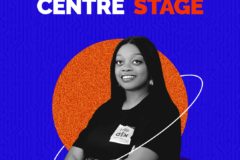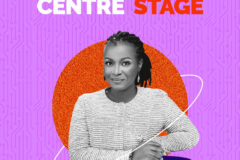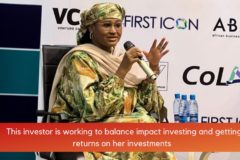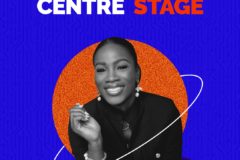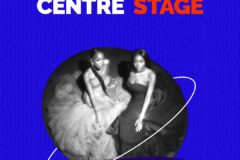Fifehan Osinkanlu describes herself as a very spirited person, who is also committed and loyal to the things that she believes in. She likes to balance her hard work with play and this reflects in the work paths she naturally gravitates towards.
Osikanlu is the founder of Eden Venture Group, a social enterprise focused on developing, supporting and empowering underserved and underrepresented demographies in emerging economies. The Amazon alum spent over ten years helping startups secure funding in the private equity space before she pivoted to social impact, where her heart had always been.
Osikanlu’s work at Eden is partly focused on leveraging online communities and networks to facilitate projects around social impact. The Eden team organises physical and virtual events with themes that cut across women’s empowerment and the growth of the creative industry.
I caught up with Fifehan for Centre Stage, and we discussed her passions, current projects and her vision for the future.
Impact and profit do not have to be mutually exclusive.
Fifehan Osikanlu: Eden Venture Group was founded out of the desire to create a space for social entrepreneurs and people passionate about social impact. A space where they can feel safe, and access the resources, capacity development, and advisory services that they need. From my experience working in the venture capital and private equity space, I found that a lot of people, especially creatives, were left out and not really taken seriously. There’s the wrong perception that their work won’t bring in profit and I just wanted to challenge that. I was interested in impact, and I think that both don’t have to be mutually exclusive. We can make a profit from impact-driven projects, and this is what I set out to do.
On #WEECREATE
FO: #WEECREATE Africa came from my own personal observations of the market. In my previous role working in private equity and the VC space, I realised that most people, especially in the finance space, did not really understand the language of creatives, or even the language of women. Men are dominant in these workspaces, and there was just no communication. After I left the private equity space, I found myself working in the creative and entertainment industry and I realised that the same thing was happening. This just made me realise that we had to address it. I believe that we need to give women and creatives the tools to thrive.
I worked on a project focused on gender equality with the Bill and Melinda Gates Foundation, and because of that, I was able to get myself embedded in the advocacy for women’s space. What we’ve been doing with that project is essentially working with influencers and celebrities with large platforms as well as NGOs to shift the mindset around critical issues pertaining to gender equality in Nigeria and Kenya. Before that, I had done some work with women and creatives, and it occurred to me that it was a good time to bring back my idea. So I went back to the drawing board and reworked the idea to include a lot of context around what’s going on in today’s world.

On the role of the digital space in empowering women
FO: Helping women access digital tools is one of the most important things we need to focus on. The internet is a valuable source of community and information which we can leverage in order to get more women empowered. Technology can open up pathways to empowerment for girls and it’s important that we pay attention to that. At Eden Venture Group, we use the internet to foster community, which is an essential feature of empowerment. Being able to find your tribe online is empowerment. Being able to access the internet is empowering. Being able to show up on the internet as authentically as possible is empowering. We need to help women stay safe online —the information is there, but our work is to make it easier and more accessible to women. Women’s voices need to be heard on the internet and we need to be included in various online spaces.
This is especially important now that we have AI, which uses data found on the internet. It needs to learn how women think, what their ideas are, and what their realities are – in order for its solutions to be as inclusive as possible. Women are going to be interacting with these tools and we need to ensure that the tools are not biased. It’s important to me that women and girls are digitally savvy and can interact with digital tools as we continue this digital revolution.
On Community as the bedrock of every healthy society
FO: There are fundamental things that I’ve learned in the course of this journey. The first thing is that community is at the foundation of a healthy society and that there are many young people, women in particular, who are seeking inclusive hybrid (digital & in-person) communities where they feel safe enough to be themselves, express themselves freely and innovate creatively without fear of bias, judgement or abuse.
Community has been a monumental part of my journey. One of the reasons why I’m so passionate about our work with women and creatives is because I myself have been through all these issues that I’m fighting for right now. After moving to Nigeria, I sought out communities that felt inclusive to women that I could be a part of but I couldn’t find any. It felt like a game of playing catch-up with the guys, and that just didn’t appeal to me. As a woman in the tech industry, especially one who had a creative side, I felt excluded from a lot of spaces and also faced a lot of negative experiences over the years, but there were no safe spaces for me. This fueled my commitment to creating communities for young girls and women, especially those who are creatives.
Another thing I’ve learned is that many people are seeking opportunities to interact and dialogue in order to exchange knowledge and ideas with like minds. It seems very clear that there is a hunger for receiving and sharing information in a non-traditional setting, and we’ve plugged into that.
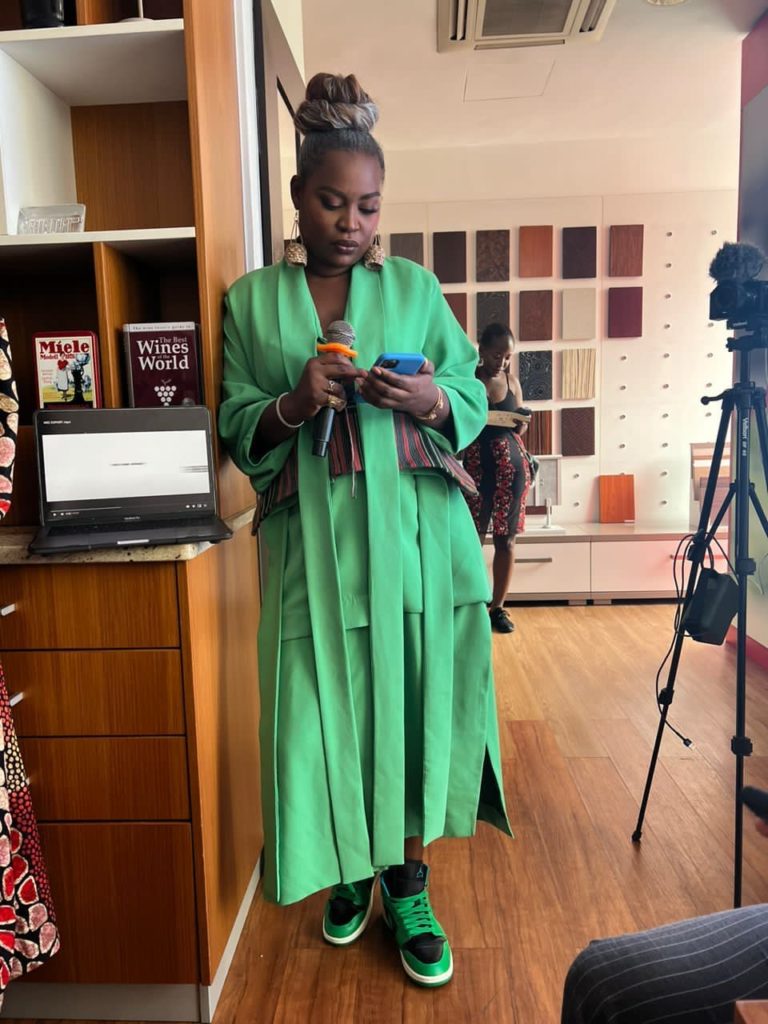
Collaboration is Key
FO: We collaborate with development organizations (NGOs, CSOs, government agencies etc.) which has been crucial to our work. We give them a chance to showcase their work and gain feedback and exposure in a more organic and authentic way than in other traditional forums.
So far, we’ve partnered with notable organisations like The Africa International Film Festival(AFRIFF), Africa Creative Market, Bill and Melinda Gates Foundation, Design Week Lagos/Made by Design and the Musa Yar’Adua Foundation to name a few. There are even more collaborations to come.
The plan for the next five years
FO: In the next five years, we plan for #WEECREATE to have the same impact as global brands like Global Citizen. We’re the first African-female-led global campaign working to facilitate women’s economic empowerment as well as the creative sector, and we’re looking to do even more work in this regard. We strongly believe that the creative sector can be a catalyst for reshaping our minds from the harmful stereotypes around gender in Africa.










